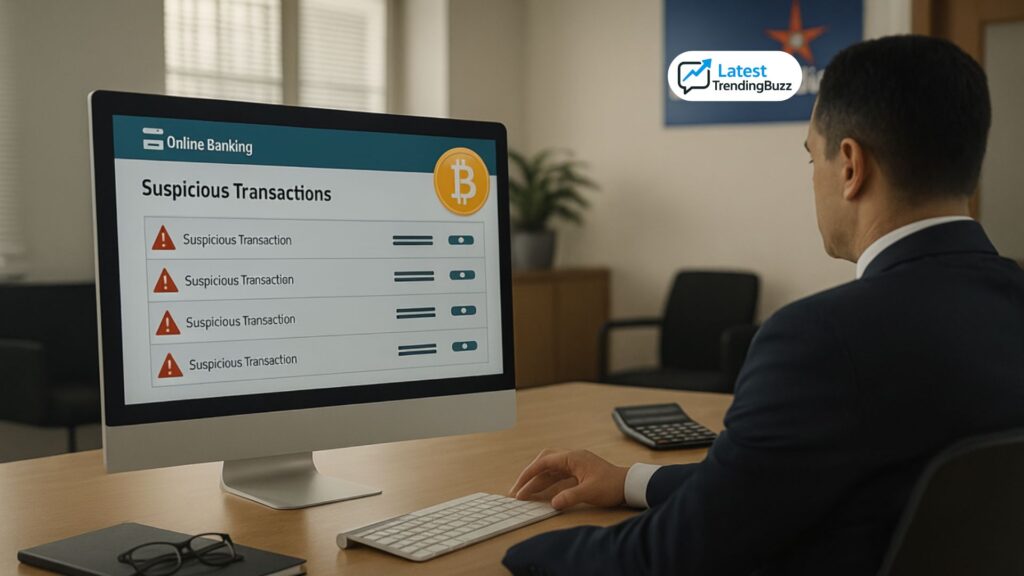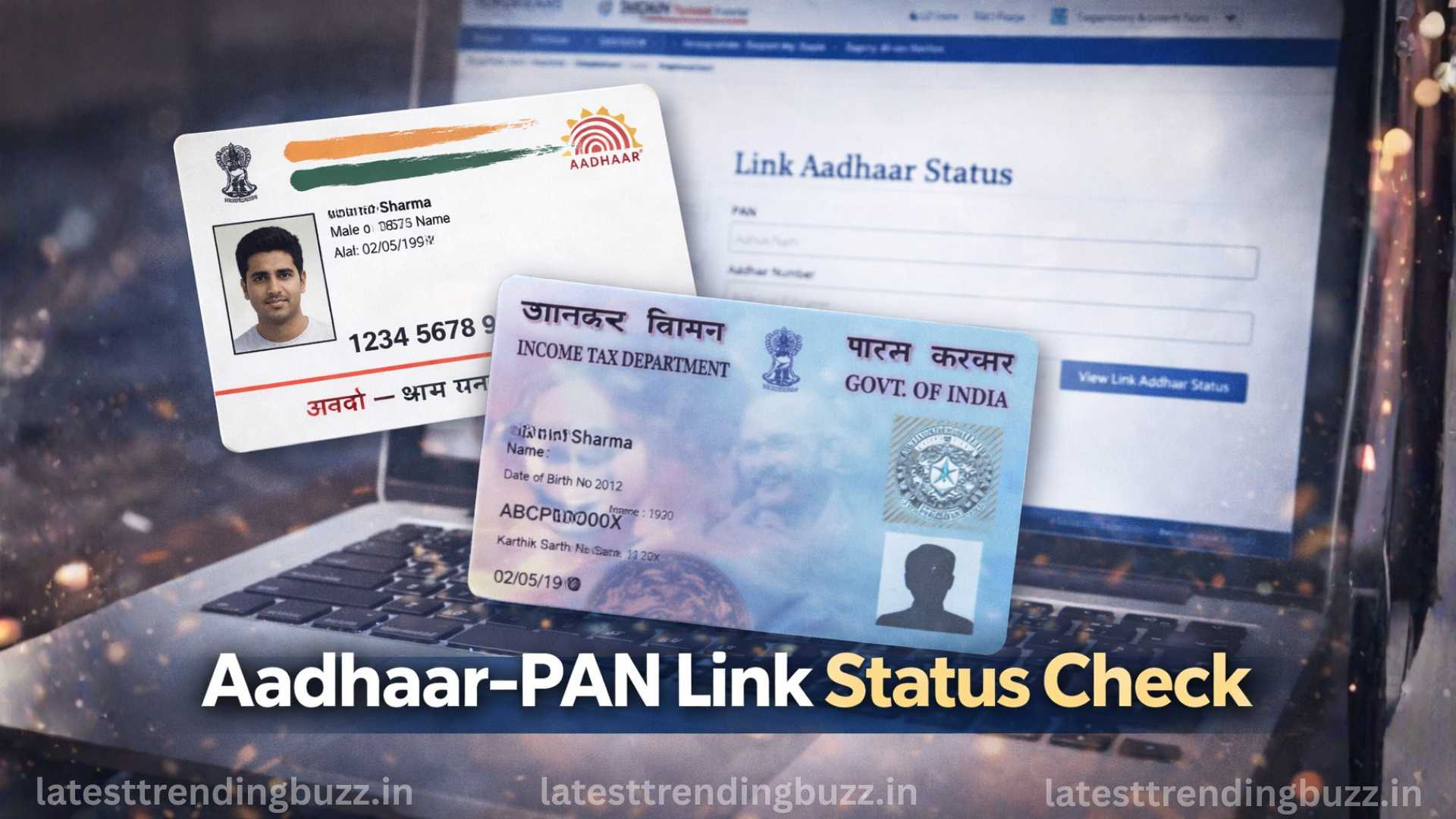When you deposit your life’s savings into a bank, you do it with faith. Faith that the money will be safe, the accounts will be secure, and the officers working there are guardians of your trust. But sometimes, the people meant to protect that trust end up betraying it. That’s exactly what shook India when headlines screamed: Bank of India Officer Steals ₹16 Crore.
This isn’t a simple theft. It’s a two-year-long saga of fraud, addiction, and eventual collapse, where a trusted officer manipulated dormant accounts, stole crores, and gambled it all away on crypto, stock trades, and online betting. At the end of it, there was nothing left—just shattered trust and broken lives.
The Shocking Betrayal: Who Was Behind It?
The man behind the scandal was Hitesh Singla, a 32-year-old staff officer at the Turner Road branch of Bank of India in Bandra, Mumbai. On the surface, he was just another mid-level banker processing forms and assisting customers. Behind the scenes, though, he was slowly building one of the most audacious insider frauds in Indian banking history.
Investigators say Singla’s obsession with fast money through speculative trading and online gambling pushed him down this path. What began as small experiments with futures, crypto tokens, and online games spiraled into a full-blown addiction. But addiction needs money—and that’s when he crossed the line from banker to fraudster.
Also Read: Hiring Trends in India 2025: Gig Economy, Tech Jobs & Skill Demand
How the Scam Was Engineered
The fraud that would later be known as Bank of India Officer Steals ₹16 Crore was carefully constructed over two years, from May 2023 to July 2025.
Step 1: Choosing the Easiest Targets
Singla didn’t go after active accounts. Instead, he focused on ones unlikely to draw attention:
- Dormant accounts that had seen no activity in years.
- Senior citizen schemes, where account holders assumed safety.
- Fixed deposits and PPF accounts, often overlooked between maturity cycles.
- Even accounts belonging to minors or deceased customers, which rarely face scrutiny.
Step 2: Exploiting Insider Privileges
With his position, Singla could quietly close these accounts or transfer funds without immediate suspicion.
- Money was routed to his personal accounts in State Bank of India (SBI).
- Transfers were split into smaller, less suspicious amounts.
- Closure entries were disguised as routine.
It was fraud built not on brute force, but on trust in his authority.

Where Did All the Money Go?
Here’s where Bank of India Officer Steals ₹16 Crore takes a bizarre turn. Instead of hiding the stolen cash or investing it in assets, Singla gambled it away:
- ₹11.5 crore+ sank into stock market futures and options trading, notorious for high risk.
- Several crores disappeared into cryptocurrencies, many of which crashed.
- The rest was wasted on online betting and gambling apps.
- At one point, he handed ₹1.5 crore to a woman in Mumbai as a “safe stash,” but later reclaimed it and lost that too.
By the time auditors flagged irregularities, there was virtually nothing left to recover.
Also Read: Meesho Navratri Sale 2025 Madness: 29,000 Orders a Minute?
The Psychology of a Gambling Spiral
The Bank of India Officer Steals ₹16 Crore case also highlights how gambling addiction works:
- The Hook: Small wins in trading give a false sense of control.
- The Chase: Losses push gamblers to double down, convinced they’ll “win it back.”
- The Collapse: Debts pile, judgment collapses, and desperation takes over.
Singla’s downfall wasn’t just about money—it was about compulsion.
The Red Flag That Sparked It All
The fraud might have stretched longer if not for a pensioner. One elderly account holder noticed his senior citizen savings account was suddenly closed without his permission. When his tax credit failed to reflect, he raised a complaint.
This lone voice of suspicion triggered internal audits. Soon, investigators discovered multiple unauthorized closures, missing funds, and irregular transfers. The scam had begun to unravel.
The Investigation Unfolds
- July 2025: Irregularities detected after Singla stopped showing up for work.
- August 6, 2025: BOI officially filed a complaint with the Central Bureau of Investigation (CBI).
- ED Joins In: The Enforcement Directorate added charges of money laundering under the Prevention of Money Laundering Act (PMLA).
- The Chase: Singla fled, hopping across Maharashtra and Gujarat.
- The Arrest: After a 13-hour chase, officials caught him on the Mahamana Express train in Gujarat, cornering him at Ahmedabad Junction.
The headline Bank of India Officer Steals ₹16 Crore was now more than news—it was a symbol of systemic failure.
Why This Case Hits Hard
1. Insider Betrayal
Banks are supposed to be the safest place for money. The idea that Bank of India Officer Steals ₹16 Crore shakes public faith—it wasn’t hackers or scammers, it was someone inside.
2. Weak Systems Exposed
This fraud revealed flaws:
- Dormant accounts left unchecked.
- Poor auditing of closures.
- Weak monitoring of staff activity.
3. No Recovery for Victims
Unlike scams where money is laundered but traceable, here the funds are simply gone—lost in speculation and gambling. Customers may never see a rupee back.
Lessons for Customers
The Bank of India Officer Steals ₹16 Crore case holds critical lessons:
- Don’t ignore dormant or secondary accounts—check them regularly.
- Enable SMS/email alerts for all activity.
- Senior citizens should review accounts with family members.
- Any unexpected closure or balance change should be reported immediately.
What Banks Must Learn
For the banking system, Bank of India Officer Steals ₹16 Crore is a wake-up call. Needed reforms include:
- Dual Authorization: No account closure without two approvals.
- AI-Powered Monitoring: Detect unusual activity in real time.
- Employee Behavior Checks: Lifestyle monitoring to spot red flags.
- Tougher Penalties: Faster legal resolution to deter copycats.
Micro-Stories From the Fallout
- The Pensioner’s Loss: A retired teacher in Bandra found his lifetime savings wiped out. His single complaint snowballed into uncovering the scam.
- The Employee Trail: Colleagues recall Singla’s growing absences, sudden stress, and mood swings—signs nobody connected until it was too late.
- The Arrest Drama: Passengers on the Mahamana Express were stunned as officers boarded and dragged Singla off. It felt like a movie scene, except real lives had been destroyed.
The Larger Picture: India’s Banking Vulnerability
The saga of Bank of India Officer Steals ₹16 Crore is more than a headline. It signals systemic risks:
- Dormant and vulnerable accounts across India could be exploited.
- Crypto and betting remain largely gray zones in regulation.
- Insider fraud is harder to detect than external cyberattacks.
If reforms don’t come, the next fraud could be even bigger.
What Customers Can Do
Practical steps after Bank of India Officer Steals ₹16 Crore:
- Link all accounts to phone/email for real-time alerts.
- Review bank statements every quarter—even for unused accounts.
- Encourage seniors to keep family or nominees in the loop.
- Close accounts no longer in use.
Conclusion
The story of Bank of India Officer Steals ₹16 Crore isn’t just about a rogue banker—it’s about how fragile trust can be when systems fail.
For Singla, the gamble cost him his freedom, career, and reputation. For customers, it meant lost savings. For banks, it’s a brutal reminder: insider fraud is as dangerous as cybercrime.
Unless stronger safeguards are built, the phrase “Bank of India Officer Steals ₹16 Crore” won’t remain a one-off headline—it could become a caution repeated again and again.
💬 Do you think Indian banks are doing enough to secure customer trust? Comment below.
FAQs
Q1: How did Bank of India Officer Steals ₹16 Crore go unnoticed for two years?
By targeting dormant accounts, splitting transfers into smaller amounts, and exploiting insider authority.
Q2: Can customers recover money from Bank of India Officer Steals ₹16 Crore?
Chances are slim. Most of the funds are lost in trades, crypto, and gambling.
Q3: What charges are filed in Bank of India Officer Steals ₹16 Crore?
Fraud, criminal breach of trust, and money laundering under PMLA.
Q4: Will the Bank of India Officer Steals ₹16 Crore case change banking rules?
Yes, it is expected to trigger tighter audits, better monitoring, and reforms for dormant accounts.
Disclaimer:
This article on Bank of India Officer Steals ₹16 Crore is based on information available from credible news reports, public records, and official statements as of September 2025. It is intended solely for informational and educational purposes. The content does not constitute financial, legal, or investment advice. Readers are encouraged to verify details independently and should not treat this article as a substitute for professional consultation. Neither the author nor the publisher is responsible for any decisions made based on this content.














